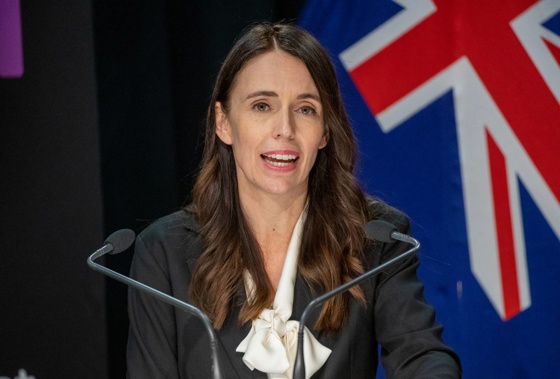
The winter Omicron wave saw the nation break the 10,000-case threshold for the first time in months this week, raising the concern that we could be in for tighter restrictions in the coming weeks.
The latest outbreak is different because it marks the first time that we are vulnerable to the impact of our relaxed border settings.
This exposed the country to variants far faster, including the highly transmissible Omicron BA.5 currently wreaking havoc around the country.
NZ Herald news director Lynley Ward, who has monitored the numbers daily since the start of the pandemic, tells the Front Page podcast that we could soon see infection levels last seen in April, when we were in the red setting.
"University of Auckland senior lecturer Dr David Welch is predicting that if we keep going the way we are that we could be up to 25,000 cases a day by August," says Ward.
Despite the rapid rise in case numbers and the growing pressure on the health system, Prime Minister Jacinda Ardern has so far been reluctant to put the country back in the red level of the traffic light system.
Ward says this largely drives home the fact that the Government is taking more than just health into account when making policy decisions at the moment.
"The Government really parked the health imperative for solely making decisions back in April when we shifted from red to orange," Ward says.
"They've got so many competing interests now. You've got the business lobby and the economic imperative to get the country going as well as the social imperative, which includes getting children back in schools.
"This also comes off the back of the Wellington protests, which Ward says provided an indication that at least some members of society had lost patience with abiding by strict restrictions."
While the case numbers are rising steadily, any changes in our level of caution will largely be determined by the pressure on our health system.
"We have seen a big rise in hospitalisations," says Ward.
"In the last fortnight, it's gone from 300 cases in hospitals to nearly 500 this week. Every one of those people is taking up space in a ward. And that's on top of any other ailment and other emergency procedures. We've already seen a number of elective surgeries that have had to be canned. Everything is just pretty stretched."
Epidemiologists have already started calling for more caution, with Auckland University's Michael Baker going the furthest in recommending that we also introduce isolation periods for those who fall ill with the flu.
Having watched the Government's moves in recent weeks, Ward doesn't believe there's any chance of this happening any time soon.
"Baker's not going to get any traction on that one, I'm afraid," says Ward.
"This week, Minister Megan Woods outright squashed that one. She said there hadn't been any talk about isolating for the flu and that you really should do what you have always done: if you're sick, stay home until you're better and then return to circulation."
While the Government has been incredibly reluctant to shift the alert level setting so far, Ward says it could become a "no-brainer" if case numbers increase to 15,000 to 20,000 a day - especially given the pressure this would place on the health system.
But even then, a return to red isn't necessarily a given.
"There's a real reluctance to move to red, simply because it will receive too much pushback. But the Covid Response Minister Ayesha Verrall is confident there are enough public health measures within the orange framework to withstand this winter wave.
"But it is going to be revised toward the end of July - and we could be in an entirely different environment by then."
Which is to say that we can do little at this stage but wait to see how severe this outbreak becomes in the coming weeks.
The Front Page is a daily news podcast from the New Zealand Herald, available to listen to every weekday from 5am.
- You can follow the podcast at nzherald.co.nz, iHeartRadio, Apple Podcasts, Spotify, or wherever you get your podcasts.
Take your Radio, Podcasts and Music with you









